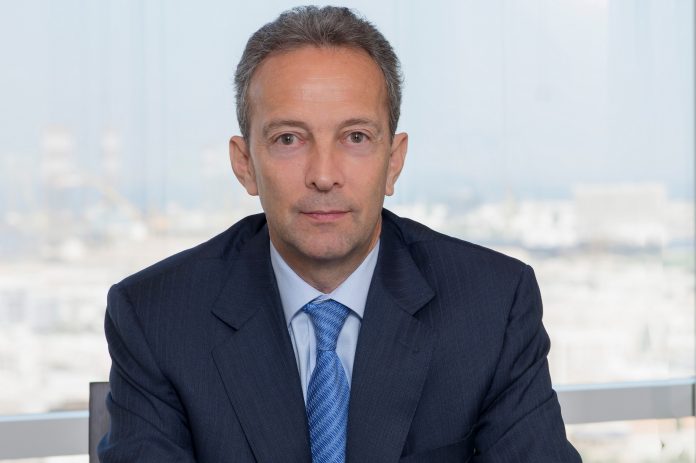How does combatting climate change figure in your business mission imperatives?
It is mission critical, but to understand how and why we first need to define our terms as “combatting climate change” can be interpreted in several ways. Climate change is a complex phenomenon that entails environmental as well political and economic processes and outcomes, all which can be material to the risks and return profiles of financial investments. At Lombard Odier, sustainability is first and foremost an investment conviction. As investors, our key objective is to make sound investment decisions on behalf of our clients—as such, climate change is an integral part of our investment research and implementation strategy.
Take physical risks for instance. In essence, physical risks are the physical manifestations of climate change (for instance heat waves, water stress, or hurricanes). Middle Eastern and North African countries are already naturally affected by difficult climatic conditions including high temperatures, scarce arable land and limited rainfalls and groundwater. These are all set to be exacerbated by unmitigated global warming and could have dramatic effects on the prosperity and stability of the region. According to the World Bank, sea level rise could affect 43 port cities in the region (24 in the Middle East and 19 in North Africa). More specifically, in Alexandria, Egypt, a half-meter sea level rise would cause over 2 million people to be displaced, and trigger $35 billion losses in land, property, and infrastructure value.
But it is not all doom-and-gloom and investors should remember that the climate transition comes with many opportunities as well. For instance, as the world accelerates its transition towards renewable sources of energy, many Arab World countries face major opportunities to improve their energy security as well as their global trade competitiveness as they are gifted with some of the world’s highest wind and solar energy potential.
Does the public understand why banks must continue to provide services to essential though possibly carbon generating industries?
There are a lot of misconceptions here. Perhaps the most prevalent and problematic one is the persistent use of carbon footprints (a current amount of greenhouse gas emissions) as a sole basis to assess the climate-suitability of an investment. To put it simply, being low carbon today does not necessarily mean being green today nor tomorrow.
To illustrate this argument, take a company operating in a typically low carbon industry like media. Now imagine this media company is currently investing heavily in energy-intensive technologies like cloud-computing and satellite telecommunications without putting in place a plan to transition towards renewable energy sources. While that company starts with a low footprint (relative to say a steel manufacturer) this media company is setting itself up to see its emissions rising through time, thus contributing to climate change and, in the process, exposing itself and its investors to transition risks (if the government were to introduce a new tax on carbon, for instance). Conversely, a forward-thinking steel manufacturer with a very high footprint today might invest heavily in hydrogen technologies and consequently set itself on course to radically decarbonize its business model. In the process it will not only mitigate climate related risks (for instance future liabilities arising from climate related lawsuits) but it will also capture the upside as global demand for green steel increases.
Ultimately, a high carbon company can be a better investment than a low carbon one. This is not just important from an investment standpoint, but it also matters in terms of impact. Indeed, the greatest positive impact on decarbonisation is destined to come from companies that are currently high emitters and that have the commercial need and financial resources to transition to a much lower level of emissions in the future.

Can banks have a positive role in the region as enablers in the fight against climate change?
Absolutely, but one should remain cautious about over or underestimating the financial sector’s agency in enabling the climate transition. For green finance to be unlocked, there is a need for green projects and conversely. Ultimately, finance and the real economy have to work hand-in-hand to promote a transition towards a more sustainable economic and financial model. Forward-thinking banks will play a critical role in financing the necessary climate mitigation and adaptation projects to tackle rising sea levels and temperatures (flood prevention and cooling infrastructure for instance). Equally, they will play a central role in facilitating climate mitigation projects, for instance by providing access to capital to renewable energy companies.
We do see very encouraging signs in this direction in the region. The Middle East, whilst traditionally associated with fossil fuel expertise, are endowed with substantial renewable energy resources, particularly relating to solar energy. Our recently published joint-study with the University of Oxford shows that some key renewables projects are in the pipeline. For example, there is a $5 billion-dollar green hydrogen production facility planned for NEOM1, Saudi Arabia. When operational, it will be powered by 4 GW of solar, wind and storage and should produce some 650 tons per day of green hydrogen for export to Europe and globally to meet the growing demands for clean transport fuels.
The UAE also presents an excellent case study into the future of Middle Eastern green competitiveness. Whilst fossil fuels still account for nearly 97% of the country’s energy mix, the UAE’s Energy Strategy 2050 targets a 50% share of low carbon energy by 2050. The UAE government’s “Operation 300bn” industrial strategy aims to develop the country’s manufacturing capabilities, including renewable energy equipment and hydrogen.
Can you see banks and financial service providers pulling away from working with some sectors in the coming years?
I think one should pay as much attention to between sector shifts as to within sector shifts. Again, think about the steel sector—it is unlikely to go away, but it will be reshaped by incumbents that embrace new ways of producing steel that are adapted to the green economy. Equally, it won’t just be about pulling away from certain sectors, it will also be about redirecting financial capital towards new ones. Ultimately, the climate transition is provoking a massive reshaping of the risks and opportunities sets within and across sectoral and geographical landscapes.
Are climate considerations spurring new product and service development in the MEA region’s banking and finance sector?
The rise of climate awareness has caused a fundamental evolution in the MEA region’s Banking and Finance sector in recent years. The climate transition has subsequently generated a finance transition, and we are currently seeing a shift towards a more sophisticated approach to ESG and sustainable finance. Where this was once focused on individual “green” investment products, it now takes account of the wider impact of investments on climate change. The Gulf Cooperation Council (GCC) countries are becoming a global hub for new technologies that impact the green economy and its financing, aiming to create long-term economic growth whilst simultaneously protecting the environment.
Recent announcements have demonstrated the acceleration of climate-related financing in the region. For example, Abu Dhabi National Energy (Taqa) just issued its first joint green bond, valued at USD700M, together with Emirates Water and Electricity Company (EWEC), a bond that has helped to diversify fund sources for a planned solar project, to include sustainable financing. This trend is beneficial to local investors as sustainable investing aims to generate higher returns than conventional strategies. The impact of climate change means that we also have to rethink the way we invest for the benefit of the planet, but also to take advantage of the opportunity for good returns, driven by these new investment solutions.
1 Any reference to a specific company or security does not constitute a recommendation to buy, sell, hold or directly invest in the company or securities. It should not be assumed that the recommendations made in the future will be profitable or will equal the performance of the securities discussed in this document
Source for World Bank Middle East and North Africa – Adaptation to Climate Change in the Middle East and North Africa Region (worldbank.org)











